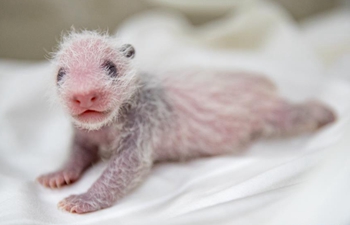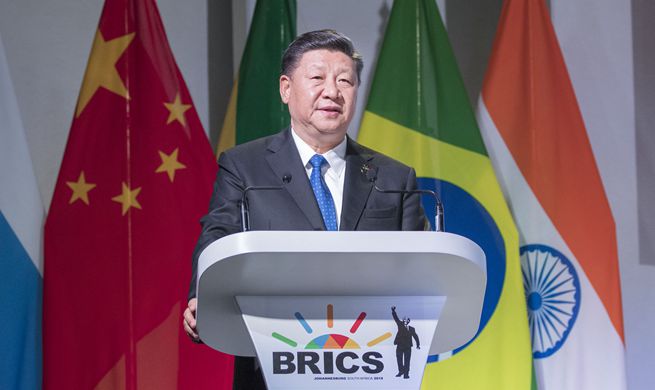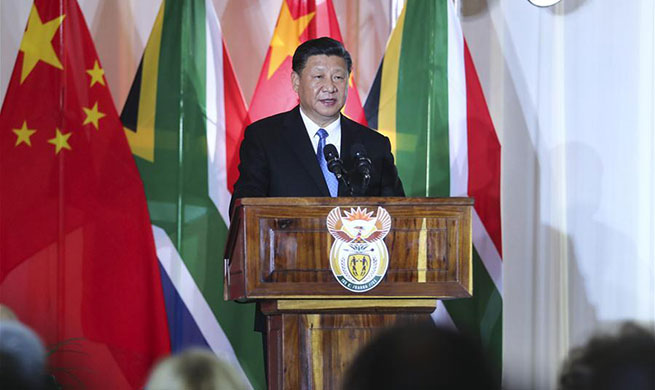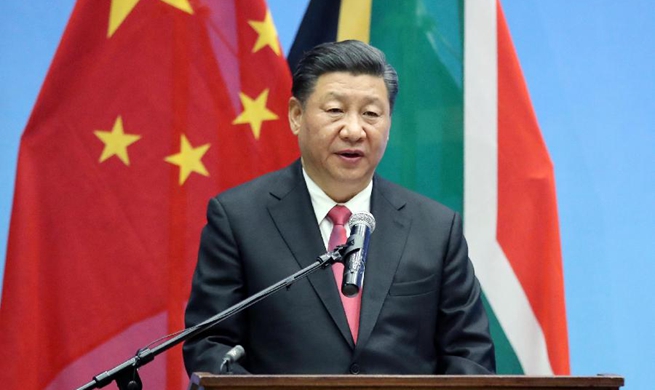by Valentina Bastias Atias, Dang Qi
SANTIAGO, July 25 (Xinhua) -- Using Chinese technology, a Chilean company has succeeded in making "non-plastic" bags that quickly dissolve in cold water and won't take hundreds of years to disintegrate.
The cost-effective formula combines hydrogen, carbon and a synthetic polymer, which doesn't cause pollution to produce a grocery bag, according to the company Solubag.
"We worked with our partner in China, with which we patented the raw material or base product, and then a utility model for the different kinds of bags to protect our idea and the concept behind it, which is water solubility," Solubag's general manager, Roberto Astete, told Xinhua after a company press conference on Tuesday.
A utility model, an exclusive right granted for an invention, usually involves minor improvements to and adaptations of existing products.
Astete and his partner Christian Olivares began experimenting alternatives to plastic bags several years ago, and then put their findings to test in China's southern Guangdong Province, a technological hub.
There, Astete set up connection with a high-tech Chinese firm Polye Materials and began cooperation with it. "It is one of the first companies to produce these water-soluble materials for plastic shopping bags and other packages," the company's spokesperson Lydia Li said.
In recent years, the two companies have lowered production costs fivefold, allowing them to offer the product "at a competitive price."
Solubag is already in talks with two major supermarket chains in Latin America to begin mass production.
The company has also invented a reusable textile bag that can be dissolved in hot water, and expects to begin rolling out 250,000 of those a day to meet future market demand.
In the meantime, the two partners are trying to find an alternative to plastic cutlery and cups.
Chile is poised to become the first South American country to phase out plastic grocery bags, as its constitutional court has ratified a bill to ban the use of plastic bags in business in early June.
Once the president enacts the law, shops and businesses will have six months to a year to stop using plastic bags.
According to the National Association of Plastics Industries, Chileans use an average of 200 plastic bags every year, with the total figure reaching more than 3 billion nationwide.
Studies show that plastic bags are harmful to wildlife, especially birds. Turtles apparently cannot differentiate between a plastic bag in the sea and one of its dietary staples, the jellyfish.
Scientists say even people are ingesting plastic waste that disintegrates and ends up in common table salt.
















